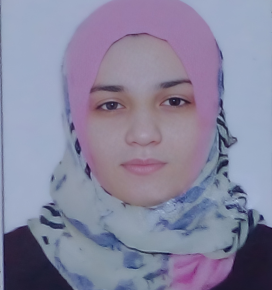
PhD
Dr. Zahraa Isam Jameel is a Lecturer in the College of Science at Al-Qasim Green University, Iraq. She earned her Ph.D. in Molecular Genetics from the University of Babylon in 2018, following an M.Sc. in Microbial Genetics (2014) and a B.Sc. in Biology (2011) from the same institution. Dr. Isam’s research primarily focuses on gene expression regulation, molecular diagnostics, human genetics, and bioinformatics, with a particular emphasis on uncovering the genetic mechanisms underlying various human diseases, including cancer. Her scientific contributions include studies on microRNA polymorphisms, genetic susceptibility to cancers, and molecular identification of pathogenic organisms. In her academic role, Dr. Isam teaches Molecular Biology, Genetics, and Bioinformatics, incorporating research-based learning approaches to enhance student engagement and critical thinking. Beyond her teaching and research, she actively contributes to the scientific community as a member of the editorial board of the Innovare Journal of Medical Sciences and serves as a reviewer for several international journals, including the Egyptian Journal of Medical Human Genetics, Oncology Research, and Frontiers in Nutrition.
Editorial Board Member of the Innovare Journal of Medical Sciences.
Reviewer for several international peer-reviewed journals, including:
Egyptian Journal of Medical Human Genetics
Oncology Research
Frontiers in Nutrition
Active Researcher in the fields of molecular genetics, cancer biology, and bioinformatics, with multiple published studies on gene polymorphisms and cancer susceptibility.
Academic Lecturer at the College of Science, Al-Qasim Green University, teaching courses in Molecular Biology, Genetics, and Bioinformatics.
Contributor to scientific publications focusing on:
Genetic polymorphisms related to prostate, urethral, and colorectal cancers.
Molecular identification of parasitic species affecting aquatic organisms.
Meta-analyses of microRNA gene variations in disease susceptibility.
Participant in academic and research collaborations within Iraq’s scientific community, promoting molecular diagnostics and genetic studies relevant to public health.